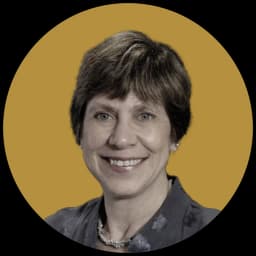The Sharansky of Saigon
This article is from the archive of The New York Sun before the launch of its new website in 2022. The Sun has neither altered nor updated such articles but will seek to correct any errors, mis-categorizations or other problems introduced during transfer.

There’s been a lot of talk since September 11 about how President Bush’s war-lovin’ ways have galvanized terrorists, recruiting jihadis to the ranks. What’s increasingly evident, however, is that the character suffering the real blowback is Osama bin Laden, who, as it turns out, jolted the U.S. into a global recruiting drive for democrats. Faced with an unprecedented attack on American shores, Mr. Bush smashed the mold for Middle East policy, and with the invasion of Iraq lit a beacon for freedom-lovers in a part of the world that until quite recently was widely seen as having none.
As it turns out, there are many. Already, Mr. Bush has been answered by the breathtaking election turnout in Iraq, the uprising in Lebanon, the tremors in Syria and Iran, the stirrings in Egypt and Saudi Arabia. But the effects hardly stop with the Middle East. In many places, people trapped under tyrannies are now watching. Ballots cast in Baghdad echo way east of Suez.
So it happens that a message reached me last weekend from within one of the world’s most repressive states: Vietnam. Word came that the Sharansky of Saigon, democratic dissident Nguyen Dan Que, had been released from his latest stretch in Vietnam’s prisons. Though Dr. Que, as he prefers to be called, is now dogged by state security agents around the clock and allowed no phone or computer of his own, he could arrange to be on the receiving end of a phone call.
So at an appointed hour, I picked up the phone in New York and spoke with Dr. Que, a 63-year-old doctor who has by now spent almost half his life fighting for liberty in Vietnam. Given that Vietnam’s secret police almost certainly eavesdrop on any contact he has with the wider world, I was prepared for a discreet and carefully phrased conversation, meant to minimize his risk. Dr. Que was not. He got straight to the point: “What I want is liberty for my people.” The question now, he said, “is how to make regime change in Vietnam.” For democratization of his country, he added, “support from the rest of the world is important.” Specifically, he wants Hanoi’s decaying communist party to “put forward a timetable for free and fair elections.”
It is important for the world to understand that in saying such things, Dr. Que knows all too well the risk he is taking. Back in 1975, as Saigon fell, he had a chance to leave – and turned it down. Even today, he says, “For me, exile is not freedom.” Instead, for more than 30 years, he has seized every chance to speak out and demand liberty for his country. For that, under Vietnam’s communist regime, he has paid dearly – spending more than 20 years in labor camps and prisons. Released on two previous occasions, due to international pressure, Dr. Que seized the chance each time to again demand freedom for Vietnam’s people. Twice, the regime jailed him again, most recently in March 2003 – an outrage that was swamped at the time by the flood of news from Iraq, as the U.S.-led coalition went in to overthrow Saddam Hussein.
And though it is cause for immediate rejoicing that Dr. Que has been released, it is not yet a sign that Vietnam’s brutal regime is easing up.
“It’s likely that I was just transferred from a smaller prison to a bigger one,” he says. His release looks more like a matter of hostage politics, as Hanoi’s regime haggles with Washington over Vietnam’s recent designation by the U.S. as a “country of particular concern” for being what Human Rights Watch calls “one of the worst violators of religious rights in the word.” Vietnam also makes Freedom House’s short list of the world’s most repressive regimes. The prisons of Vietnam are infamous for torture, beatings, and filthy conditions. Dr. Que notes that after his latest bout, in which he was imprisoned incommunicado for two years, he is “tired out.”
Dr. Que does not have access to the daily diet of news that feeds the free world. But given the feats of modern technology to spread information, he knows enough about what is now happening in the Middle East so that he wished to share his views on how America’s intervention in Iraq is like the war in Vietnam, and how it isn’t. The similarity, he says, “is the same fighting spirit for freedom.” The difference, he adds, is that in the fight for freedom, the side America is on “will triumph this time.”
Why?
“The world is changing,” says Dr. Que. “There are more opportunities than ever.”
He is right, and if the world is changing, it is because the U.S. is hardly alone in prizing freedom. In every country are people who care about liberty – and in most places there are a few willing to pay dearly and take extraordinary risks to lead the way. Dr. Que is one, and as we watch the Middle East, it bears remembering, as he says, that these are “universal values,” that in many places there are people who given any chance at all will answer freedom’s call.
Ms. Rosett is a journalist in residence with the Foundation for the Defense of Democracies and an adjunct fellow at the Hudson Institute. From www.OpinionJournal.com. © Dow Jones & Company Inc.

